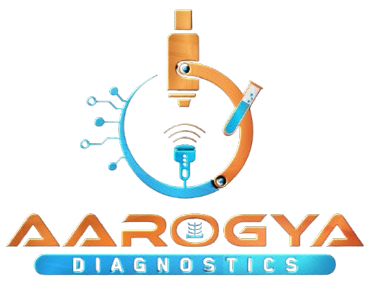Understanding the health of your heart is crucial for a long and healthy life. Heart marker tests help detect any potential threats to your heart health. These tests measure various cardiac biomarkers in the blood, helping doctors understand how well your heart is functioning. Knowing about these tests can empower you to take charge of your heart health.
Why Heart Marker Tests are Crucial for Cardiac Health
Heart marker tests are vital because they catch early signs of heart problems. Detecting issues sooner reduces the chances of serious cardiovascular diseases. Early detection with cardiac markers allows timely intervention and can save lives.
- Preventing Serious Problems: Identifying heart issues early prevents more severe diseases. Regular tests provide insights into your heart’s condition.
- How they Help: These tests measure proteins and enzymes related to heart function. Cardiac marker troponin levels increase when there is heart damage. Higher levels warn doctors about potential heart conditions, aiding in early treatment.
- Real-Life Example: Consider Anna, who felt sudden chest discomfort. A cardiac markers blood test quickly revealed increased enzyme levels, leading to early intervention and appropriate treatment—saving her from a heart attack.
Key Risk Factors Leading to Heart Disease
Understanding risk factors helps people decide when to get cardiac risk markers tests. Here are some common contributors:

- Lifestyle Choices: Poor diet, lack of exercise, and smoking increase heart disease risk. These factors are controllable, making lifestyle changes important for prevention.
- Genetic Makeup and Age: Some risks are inherited, while others increase with age. Knowing your family history can guide you in getting regular tests.
- Inflammation and C-reactive Protein (CRP): High CRP levels point to inflammation, a risk for heart disease. Managing inflammation through diet and lifestyle changes can reduce this risk.
By recognizing these factors, you’d know when to take a cardiac markers test to prevent complications.
Types of Heart Marker Tests
Several tests help measure heart markers in blood, giving insights into heart health. Here’s a look at the most common ones:
Blood Tests
- Cardiac Biomarkers Test: These tests measure proteins like Troponin and C-reactive protein (CRP). High levels of these proteins indicate heart stress or injury.
- Cardiac Enzyme Markers: Tests such as the blood test cardiac enzymes identify enzymes released due to heart damage.
- NT-proBNP Test: This test assesses proBNP levels to identify heart failure risks.
ECG/EKG and Stress Tests
- ECG/EKG: This checks the heart’s electrical activity. It is useful for detecting irregular heartbeats or myocardial infarction.
- Stress Test: This test measures heart function during physical activity. It helps identify conditions like blocked arteries.
Imaging Tests
- Echocardiography: It uses sound waves to create images of the heart, evaluating its structure and function.
- Myocardial Perfusion Imaging: This test shows how well blood flows through the heart muscle, helping spot blocked arteries or reduced blood flow.
Each test provides a piece of the puzzle in understanding heart health, making them essential.
How Results Translate into Heart Health Insights
Understanding test results can be daunting, but they offer valuable clues about heart health.
- Breaking Down Results: Different cardiac markers have different meanings. For example, elevated Troponin levels indicate heart injury.
- Proactive Steps: Use test insights to adopt a proactive approach to heart health. Regular testing means problems are spotted early.
- Making Changes: Test results often lead to lifestyle and treatment changes. A patient with high CRP levels might need to alter their diet or exercise routine to reduce inflammation.
Monitoring your tests allows you to adjust your lifestyle for better health.
Choosing the Right Time for Heart Marker Testing
Knowing when to test can safeguard your heart health.
- Who Needs Testing: Older adults and those with family history or risk factors should consider regular cardiac markers test.
- Symptoms to Watch: Symptoms like chest pain, shortness of breath, or dizziness indicate a need for immediate testing.
- Conclusion: Communicating with healthcare professionals about your risks and symptoms can ensure you get tested at the right time.
In conclusion, heart marker tests are an essential tool in maintaining heart health. Understanding when and how to take these tests, along with making lifestyle changes based on test results, can significantly enhance your quality of life. Regular communication with your doctor and being proactive about testing can help you stay informed and prepared, ensuring a healthier heart.

